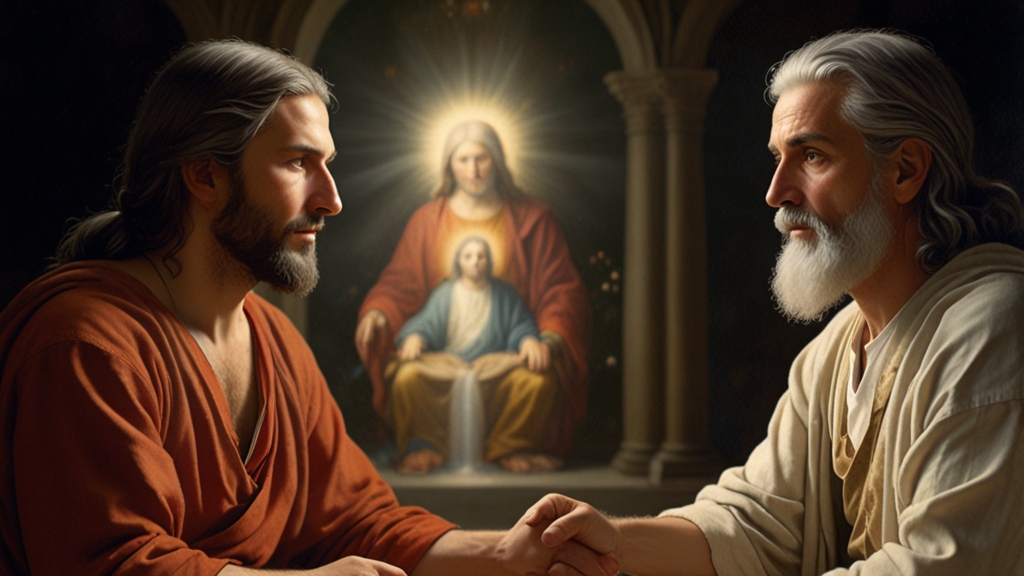Philosophy and Spirituality Finding Common Ground
Philosophy and spirituality, though often seen as distinct, share a multitude of intersecting paths. Both pursue fundamental questions about existence, meaning, and the nature of being. While philosophy tends to employ reason and logic to dissect these questions, spirituality often relies on internal experience and transcendent wisdom. By acknowledging their overlaps and differences, we can find a rich tapestry of insights that together address life's deepest mysteries.
Defining Philosophy and Spirituality
Philosophy is the intellectual endeavor of questioning the fundamental nature of reality, knowledge, and existence. Throughout history, philosophers have debated moral values, the nature of consciousness, and the structure of the universe. It is a discipline characterized by critical analysis and evidence-based arguments.
Spirituality, on the other hand, is more personal and experiential. It often involves a quest for ultimate meaning, a deep sense of connection to something greater than oneself, and the exploration of one’s innermost beliefs and feelings. Spirituality can encompass religious beliefs but is not confined to them; it can be atheistic, agnostic, or bound to various secular traditions.
Common Questions and Shared Pursuits
One of the primary commonalities between philosophy and spirituality is their pursuit of answers to existential questions. Both fields grapple with concepts of purpose and the nature of self. For instance, questions such as "What is the meaning of life?" and "What happens after death?" are central to both.
"Philosophy, in its simplest form, asks questions and seeks answers through reason and logic. Spirituality, in turn, asks those same questions but seeks answers through personal experience and inner knowing."
Both philosophy and spirituality also engage deeply with the notion of ethics and morality. Philosophers like Aristotle and Kant have offered robust frameworks for understanding moral action, just as spiritual traditions provide guidelines for living a virtuous life. Whether through the Golden Rule found in various religious texts or the categorical imperative, ethics serves as a crucial bridge between these domains.
Divergence and Confluence
While there are significant areas of overlap, philosophy and spirituality also diverge in meaningful ways. Philosophy is often critiqued for being overly analytical and detached, sometimes losing sight of the lived human experience in its quest for objective truths. Spirituality, however, may be criticized for lacking empirical rigor and being overly subjective.
"Just as philosophy risks becoming disconnected from the human condition, spirituality can also fall into the traps of dogmatism and irrationality. By acknowledging these pitfalls, both can strive for a balanced understanding."
Yet, it's in balancing these differences that a more holistic approach emerges. Philosophical frameworks can benefit from the depth of personal revelation that spirituality offers. Simultaneously, spirituality can be enriched by the critical questioning and intellectual rigor that characterize good philosophy.
Modern Intersections
In contemporary society, the lines between philosophy and spirituality are increasingly blurred. The rise of secular spirituality—mindfulness, meditation, and holistic health practices—often draws on both philosophical inquiry and spiritual experience. Books, podcasts, and other media explore how ancient wisdom can be harmonized with modern science and reason.
Moreover, some academic philosophers today are not averse to discussing spiritual matters. Philosophers like Alan Watts and Eckhart Tolle have become public intellectuals who bring philosophical and spiritual conversations into mainstream discourse.
Conclusion
The intersection of philosophy and spirituality offers a fertile ground for exploring the many dimensions of human existence. By understanding and appreciating the strengths and limitations of each, we can cultivate a more enriched perspective. Philosophy can ground spirituality in logical examination, while spirituality can infuse philosophy with profound personal meaning and insight. Together, they contribute to a more comprehensive understanding of the world and our place within it.











